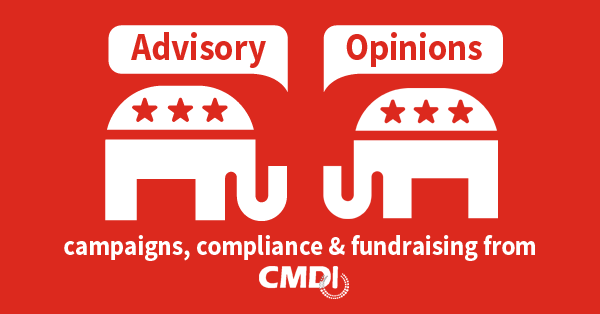Raffles and bingo games are popular fundraisers for churches and nonprofits, but do they work on political campaigns? In this episode of Advisory Opinions, the two hosts discuss the problems and pitfalls that campaigns can get into with these fundraising events, highlight examples in Florida, Kansas and Michigan, and examine the different state laws surrounding games of chance in politics.
Raffles: It comes down to the state.
In 2008, the Institute for Free Speech reviewed state laws and found that Missouri was the only state at the time to allow raffles for political campaigns. While FEC regulations allow games of chance like bingo or raffles, political campaigns and PACs also must follow state laws.
Each state has different policies. For example, California prohibits raffles from being advertised on the web. Hawaii and Kansas prohibit them completely. Other states allow lottery or gambling games for political campaigns, but they must register with the state.
Florida: Check State Laws First
Chris Crowley ran into legal trouble when an anonymous tip led to an arrest warrant for promoting a lottery and violating Florida campaign laws at a June 14 fundraiser. A Facebook Live video captured Crowley announcing a raffle for a gift baskets and a “50/50 raffle.”
According to Crowley, he didn't find out about the raffle until he arrived at the fundraiser, which netted him $670 from the raffle and $1,600 from donations. Despite telling authorities he “wasn't 100 percent sure” if he could keep the money, he took the funds and decided to research it later.
Six days later, Crowley contacted the Florida Division of Elections to ask if he could keep the money. They informed him that he was not allowed, so he returned the money to the organization that hosted the fundraiser.
According to Naples Daily News:
He acknowledged to investigators that he read the candidate and campaign treasurer handbook before entering into the race for state attorney, but he said he could not find any rules prohibiting raffles.
Investigators wrote that when they searched the handbook for information regarding raffles to raise money for campaigns, they found that it was illegal.
Michigan: the $500,000 Bingo Game
The Michigan Democratic Party incurred a $500,000 fine from the FEC for problems with state-approved bingo games they ran from 1981 to 2014. While the games raised up to $2 million per year, they were controversial. A 1981 FEC Advisory Opinion permitted the games, and the Michigan Lottery Bureau issued them licenses. However, an investigation revealed inconsistencies in record-keeping and FEC filings:
The reporting of 12,500 bingo contributions involving $4.5 million was inaccurate.
The party understated contributions at the bingo games over 14 years by $4.4 million and disbursements of bingo prize money by $3.9 million.
The party's bingo chair people, instead of keeping itemized lists of contributions, created lists of a small subset of players and attributed fictitious contributions to them.
This could have resulted in the largest fine ever levied by the FEC. However, they negotiated it down because the MDP proactively worked with the FEC.
Kansas: A Potential March Madness Felony
In 2014, Tim Huelskamp sent an email appeal with a chance to win four tickets to the NCAA men’s basketball tournament. That year, three state schools – K State, Wichita State, and University of Kansas – were in the tournament. If you donated at least $10, you were entered into a contest for the tickets. A winner would be randomly selected from the contributors.
This broke Kansas laws and was a possible felony. The district attorney of Douglas County sent the campaign a letter explaining that this appeared to meet the qualifications of a “lottery” in the state:
There was a prize.
The prize was determined by chance.
The prize required a “consideration” (i.e. donation) to be included in the game of chance.
Huelskamp’s campaign quickly followed up on the email with clarification saying that you didn’t have to make a donation to enter the contest. The DA was happy with this change and explained:
“Often times, charitable organizations or other well-intentioned groups organize events which run afoul of the criminal prohibition of these types of drawings,” Branson said. “Unless we have some reason to believe there was some actual intent to operate in violation of the law, we do not usually initiate a formal prosecution.”
Listen to the episode and subscribe to Advisory Opinions on Google Play, iTunes, and Tunein.
The views and opinions expressed on this podcast are those of the hosts and do no necessarily reflect the policies or positions of CMDI, or any other agency, organization, employer, or company.
